Do you often feel frustrated, irritable, and withdrawn? If you are a man and if you are frequently in a bad mood, then it’s likely that you have male depression. The shadows of masculinity can often hide the signs of depression in men.
Male mental health is a topic we rarely talk about as a society that is supposed to be fair and equal. Yet, societal expectations often silence the cries for help from men who suffer from depression.
But let’s change that today! Depression affects millions of people worldwide, regardless of gender. However, men often face unique challenges when it comes to recognizing and addressing their mental health concerns.
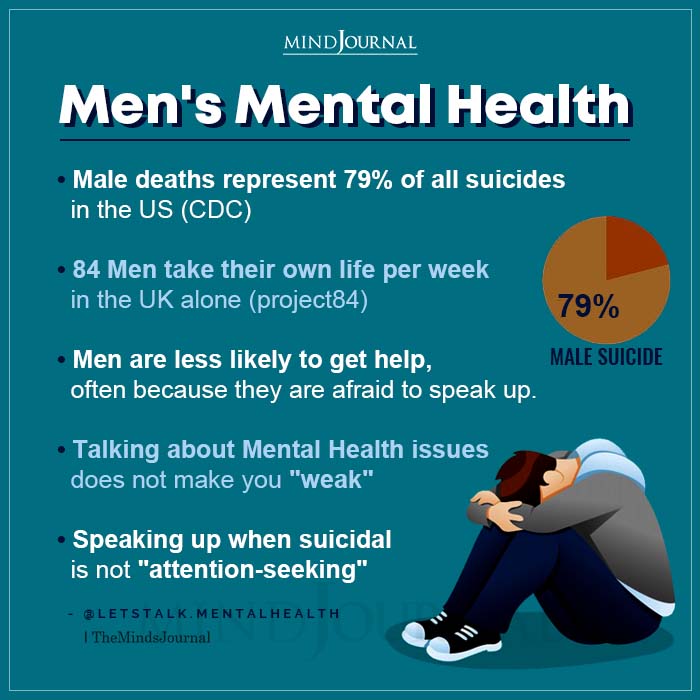
Let us dive into the often overlooked topic of depression in men, exploring what it feels like, common signs of depression in men to look out for, and the underlying causes of depression in men and how to deal with it. By shedding light on this often overlooked topic, we hope to encourage open conversations and promote understanding of men’s mental health.
What Depression in Men Feels Like
Depression is a complex mental health condition that affects individuals differently. Men experiencing depression may find it challenging to express their emotions or may not even recognize their own symptoms.
Society often expects men to be strong, self-reliant, and in control, which can further compound the difficulties of acknowledging and addressing depression.
Depression in men can manifest as a persistent feeling of sadness or emptiness. They may experience a loss of interest or pleasure in activities they once enjoyed. Men may also find themselves feeling fatigued, irritable, or restless without an apparent reason.
Moreover, depression can affect their appetite, sleep patterns, and overall motivation, leaving them feeling overwhelmed and helpless.
Related: 5 Truths Everyone Needs To Know About Men’s Mental Health
Signs of Depression in Men You Shouldn’t Ignore
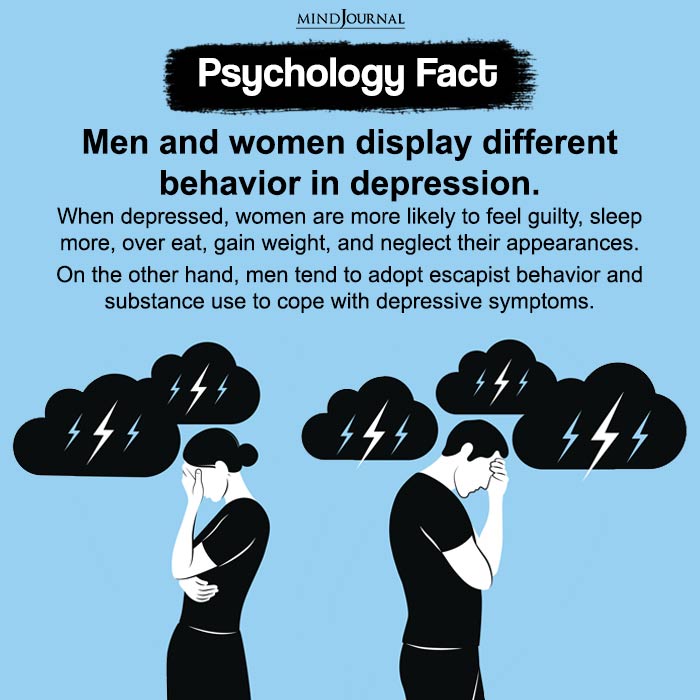
When it comes to recognizing male depression, it is essential to be aware of the signs of depression in men that may differ from those commonly associated with women. Here are some key indicators:
1. Emotional Withdrawal
Men with depression often withdraw from social activities, friends, and family. They may isolate themselves, avoiding social interactions they once found enjoyable. This withdrawal can stem from feelings of shame, embarrassment, or the belief that seeking help is a sign of weakness.
2. Increased Anger or Irritability
Men may exhibit higher levels of irritability, anger, or frustration when experiencing depression. These emotions can be a defense mechanism, masking underlying feelings of sadness or hopelessness.
3. Escapist Behavior
Engaging in excessive work, reckless behavior, substance abuse, or seeking constant distraction can be a coping mechanism for men dealing with depression. These behaviors offer temporary relief but often exacerbate the underlying condition. This is one of the most striking signs of depression in men.
4. Physical Complaints
Depression can manifest in physical symptoms such as chronic headaches, stomach aches, back pain, digestive issues, or unexplained body pain. These somatic complaints can mask underlying emotional distress.
These symptoms may persist even after thorough medical evaluations, indicating a possible underlying mental health issue.
5. Risky Behavior
Some men with depression may engage in increased risk-taking behavior as a form of self-sabotage or seeking thrills to temporarily escape their emotional pain.
Men experiencing depression may engage in risky behaviors such as excessive gambling, reckless driving, or unsafe sensual practices without regard for personal safety. These actions can be an unconscious attempt to escape or numb emotional pain.
6. Changes in Sleep Patterns
Insomnia or excessive sleep are common signs of depression in men. They may struggle to fall asleep, stay asleep, or find themselves sleeping excessively as a way to escape their emotional state.
7. Loss of Interest and Energy
Men may lose interest in activities they previously enjoyed, including hobbies, sports, or spending time with loved ones. This loss of enthusiasm can contribute to feelings of emptiness and isolation.
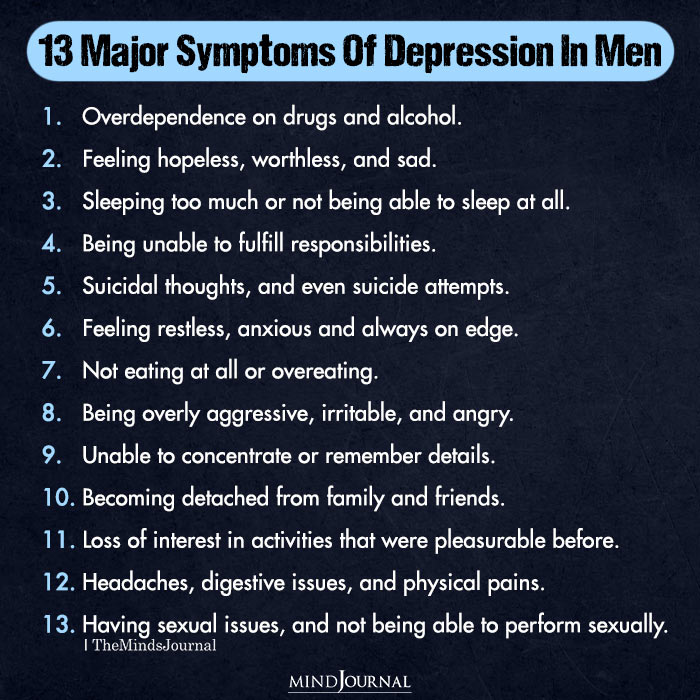
Looking for more signs of depression in men? Read on to learn more.
8. Difficulty Concentrating
Depressed men often experience difficulties with focus, memory, and decision-making. These cognitive impairments can impact their professional and personal lives, leading to further frustration and self-doubt.
Related: 5 Major Signs Of Mental Health Issues In Men
9. Suicidal Thoughts
In severe cases, men with depression may have thoughts of suicide or exhibit self-destructive behavior. It is crucial to take any mention of suicide seriously and seek immediate professional help.
10. Difficulty Expressing Emotions
Men with depression may struggle to express their emotions openly and may instead rely on anger, irritability, or aggression as a way to cope. This difficulty in emotional expression can stem from societal expectations of masculinity, which often discourage vulnerability and emotional openness.
11. Loss of Libido
Depression can significantly impact a man’s sensual desire and function. It may lead to a decreased libido and related bodily dysfunction.
These changes can further contribute to feelings of inadequacy or a strain on intimate relationships.
12. Increased Substance Use
Men with depression may turn to alcohol or drugs as a way to self-medicate and temporarily alleviate their emotional distress. Substance use can provide a short-lived escape from depression symptoms but ultimately exacerbate the condition and lead to a harmful cycle of dependency.
It is important to remember that experiencing one or more of these signs of depression in men does not necessarily mean a person is depressed. However, if these symptoms persist for an extended period and significantly impact daily functioning and quality of life, it is crucial to seek professional help for a proper evaluation and appropriate treatment.
Causes of Depression in Men You Should Be Aware Of
Depression in men can stem from a variety of factors, including biological, psychological, and social influences. Here are some common causes of depression in men:
1. Biological Factors
Hormonal imbalances, genetics, and changes in brain chemistry can contribute to depression in men. Men with a family history of depression or who have experienced traumatic brain injuries may be at a higher risk.
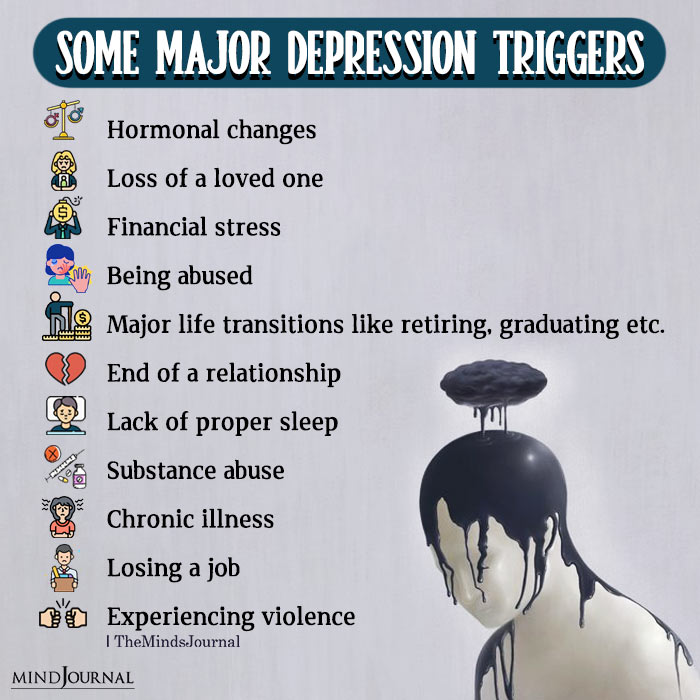
2. Psychological Factors
Men who face significant life stressors such as financial difficulties, relationship problems, or work-related stress may be more susceptible to depression. Additionally, unresolved emotional trauma or a history of abuse can also play a role. This is one of the major causes of depression in men.
3. Social Factors
Societal expectations, cultural norms, and gender stereotypes can impact men’s mental health. The pressure to conform to traditional masculine roles, such as being stoic, independent, or the primary provider, can lead to suppressed emotions and feelings of inadequacy.
However, understanding the causes and signs of depression in men is not enough, as we must also learn how to treat this psychological condition effectively.
Related: 3 Most Common Mental Health Disorders In Men
Treatment Options for Male Depression
Treatment options for men with depression typically involve a combination of therapy, medication, and lifestyle changes. It’s important to note that each person’s experience with depression is unique, so treatment plans may vary based on individual needs. Here are some common treatment approaches:
1. Psychotherapy
Psychotherapy, also known as talk therapy or counseling, is a widely used and effective treatment for depression. Therapy provides a safe and supportive environment for individuals to explore their emotions, thoughts, and behaviors. Different types of therapy may be utilized, including:
a. Cognitive Behavioral Therapy (CBT)
CBT helps individuals identify and challenge negative thought patterns and behaviors that contribute to depression. It focuses on developing coping strategies, and problem-solving skills, and fostering a more positive outlook.
b. Interpersonal Therapy (IPT)
IPT focuses on improving interpersonal relationships and communication skills. It helps individuals address relationship conflicts, life transitions, and social difficulties that may contribute to depression.
c. Psychodynamic Therapy
This form of therapy aims to uncover and work through unresolved conflicts and past experiences that may be contributing to depression. It focuses on gaining insight into unconscious patterns and fostering self-awareness.
2. Medication
In some cases, medication may be prescribed to help manage the signs of depression in men. Antidepressant medications, such as selective serotonin reuptake inhibitors (SSRIs) or serotonin-norepinephrine reuptake inhibitors (SNRIs), are commonly prescribed. These medications work by balancing chemicals in the brain that affect mood.
It is important to consult with a psychiatrist or a healthcare professional to determine the most appropriate medication and dosage for each individual.
Related: Why Men Who Cry Are Not Weak, They Are Stronger Than The Rest
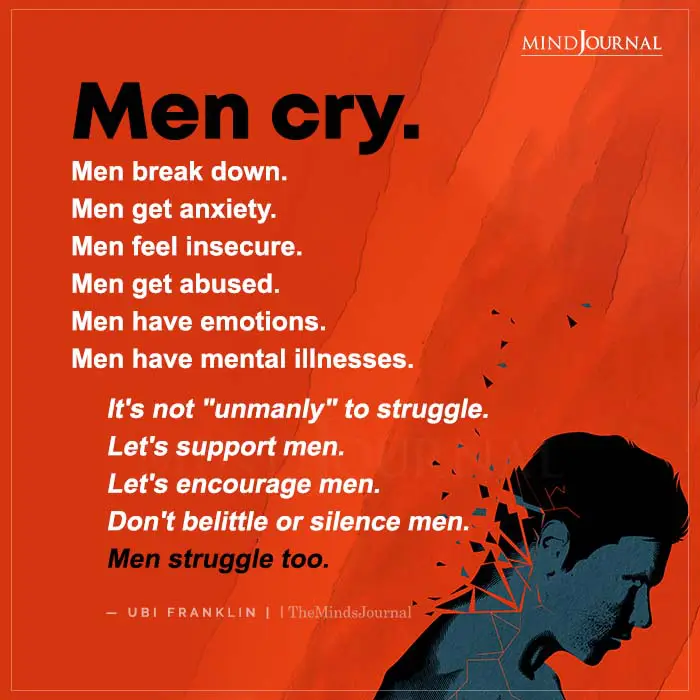
Best Self-Help Strategies To Deal With Depression in Men
Apart from therapy and medication, making positive lifestyle changes can greatly support the treatment of depression. Here are some key areas to focus on:
1. Regular Exercise
Engaging in regular physical activity, such as walking, jogging, or participating in sports, has been shown to have a positive impact on mood. Exercise helps release endorphins, which are natural mood boosters.
2. Healthy Eating
A balanced diet rich in nutrients can support overall mental and physical well-being. Consuming foods high in omega-3 fatty acids, such as fatty fish, walnuts, and flaxseeds, may have potential benefits for managing depression.
3. Adequate Sleep
Establishing a consistent sleep routine and ensuring sufficient sleep can help regulate mood and energy levels. It is recommended to aim for 7-9 hours of quality sleep each night.
4. Stress Management and Self-Care
Engaging in activities that promote self-care and relaxation can significantly improve mood and overall well-being. Healthy coping mechanisms for stress can include –
- Practicing mindfulness meditation
- Deep breathing exercises
- Engaging in hobbies
- Taking breaks from work
- Setting aside time for activities that bring joy and fulfillment
5. Social Support
Building and maintaining a strong support system is crucial for men with depression. Spending time with loved ones, joining support groups, or seeking out community activities can provide a sense of connection and belonging.
It is important for men with depression to work closely with mental health professionals to develop an individualized treatment plan that addresses their specific needs. With the right support and treatment, it is possible to effectively manage depression and regain a sense of well-being.
Takeaway
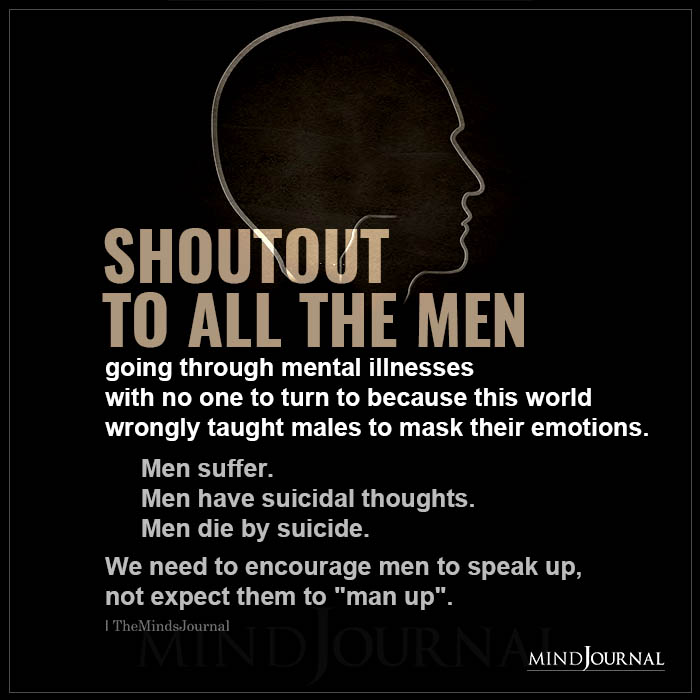
Depression is not a sign of weakness but a medical condition that requires understanding, compassion, and professional support. By recognizing the signs of depression in men, we can create a safe space for open conversation and encourage men to seek the help they need.
Remember, reaching out to someone you suspect may be struggling and offering support can make a significant difference in their journey towards healing. Let’s challenge the stigma surrounding men’s mental health and build a society where emotional well-being knows no gender boundaries.
Related: 10 Ways To Supercharge Your Dopamine Levels Naturally And Never Feel Depressed Again
Frequently Asked Questions (FAQs):
How does a man act when he is depressed?
A depressed man may show signs like irritability, anger, social withdrawal, loss of interest, changes in sleep or appetite.
What is the leading cause of depression in males?
The leading cause of depression in males is a combination of genetic, biological, environmental, and psychological factors.
What age is depression most common in men?
Depression is most common in men between the ages of 40 and 59, though it can occur at any age.
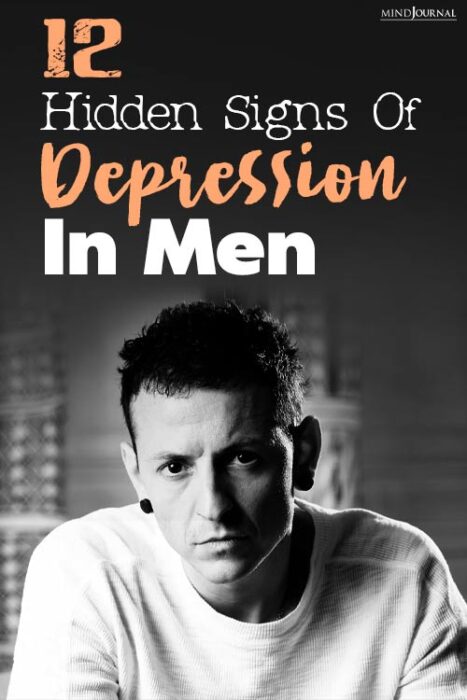
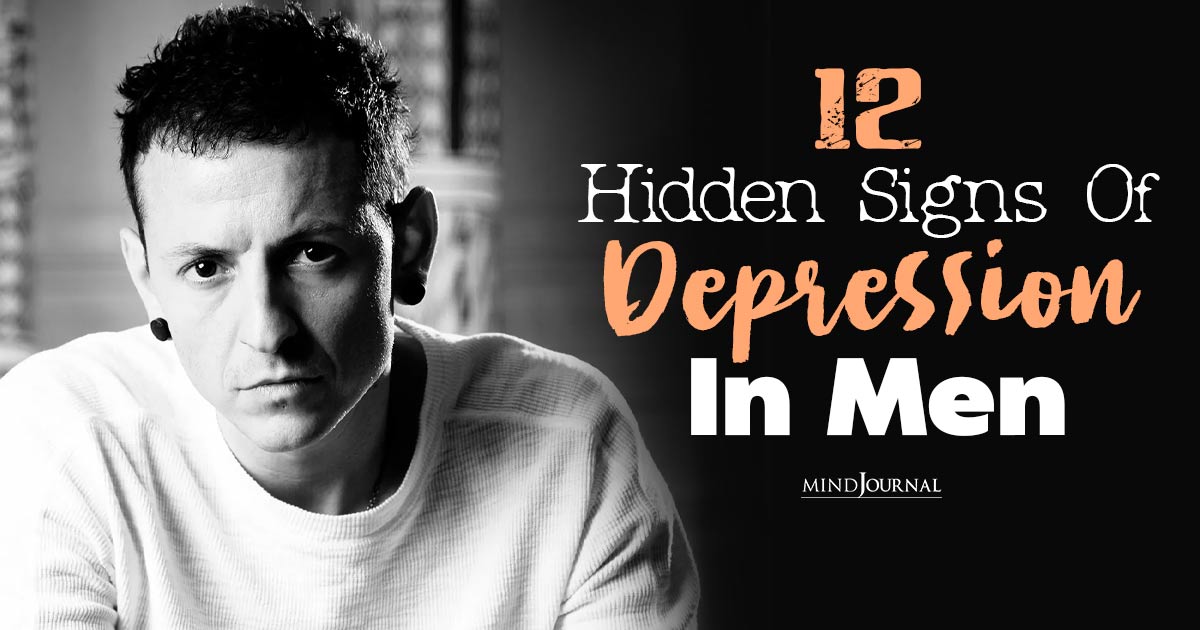





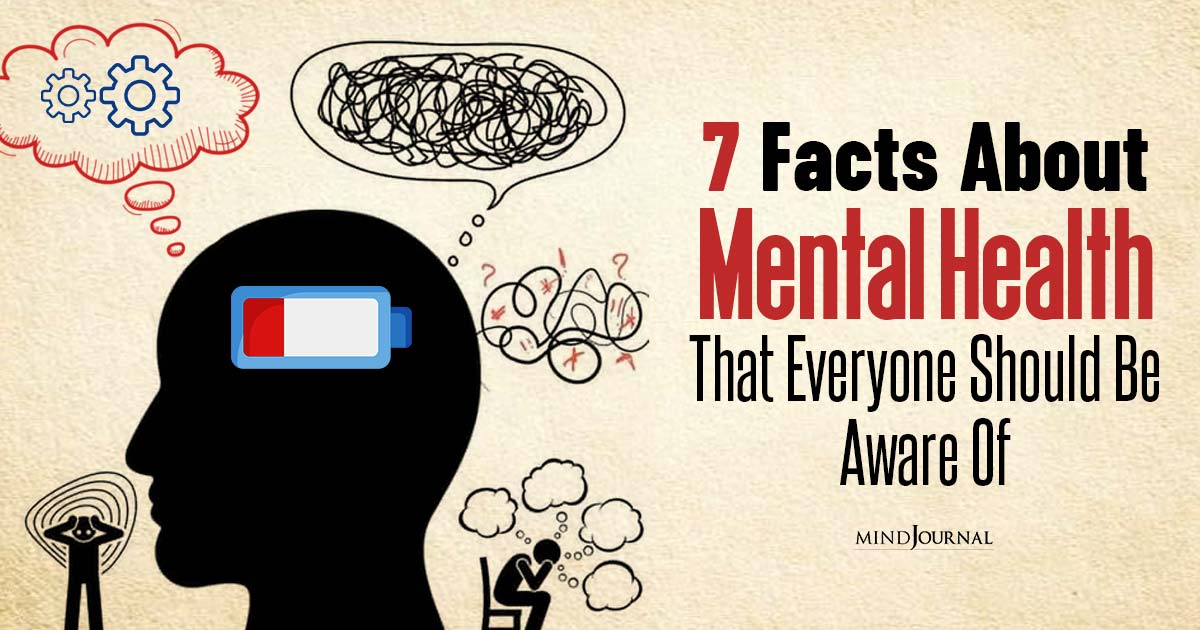

Leave a Reply
You must be logged in to post a comment.